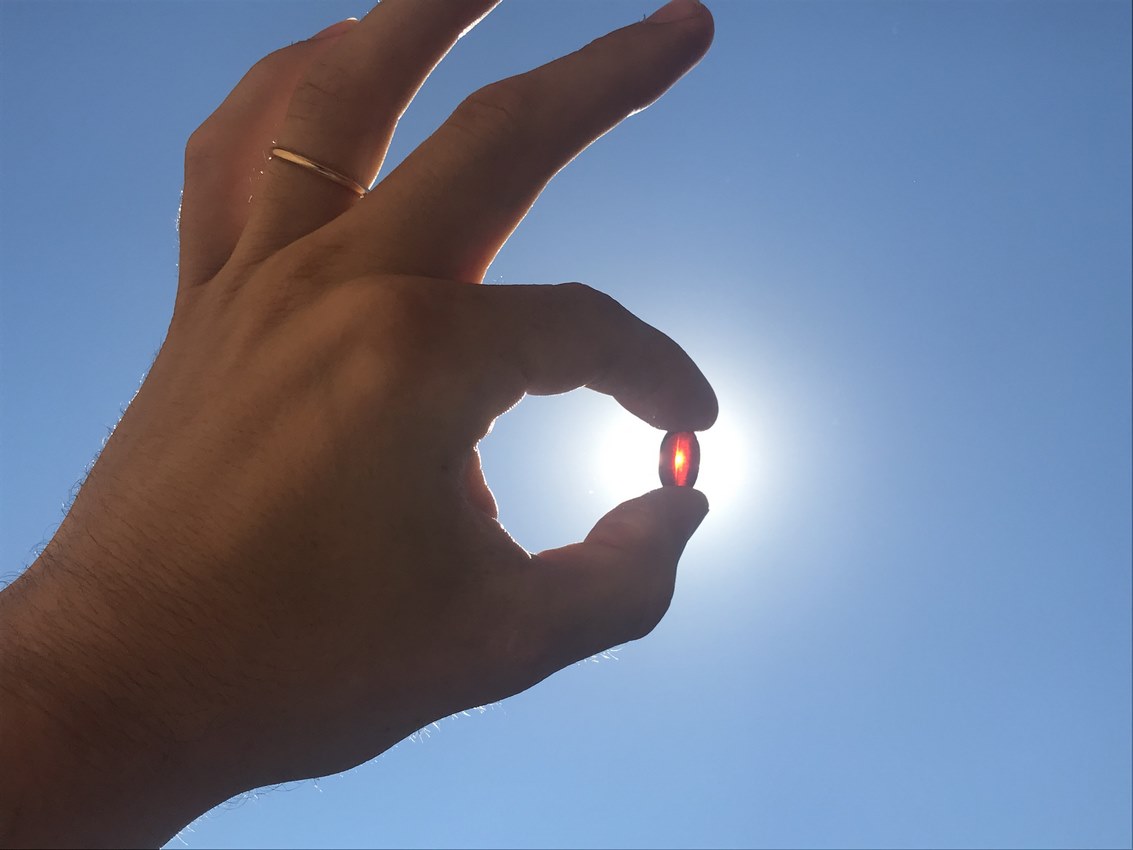Researchers have found that vitamin D improves immunity to cancer by encouraging the growth of a type of gut bacteria in lab mice.
Given a diet rich in vitamin D, they had better immune resistance to cancers and improved responses to immunotherapy treatment.
The team found that vitamin D acts on cells in the intestine, which in turn increases the amount of a ‘good’ bacteria called Bacteroides fragilis. This microbe gave mice better immunity to cancer as the transplanted tumors didn’t grow as much.
The team from the Francis Crick Institute, National Cancer Institute, National Institutes of Health and Aalborg University in Denmark reported their findings in the journal Science.
To test if the bacteria alone could give better cancer immunity, mice were split into two groups. One received a normal diet but with Bacteroides fragilis, which improved immune response. The mice placed on a vitamin D-deficient diet were not able to resist tumor growth.
“What we’ve shown here came as a surprise,” said Caetano Reis e Sousa, head of the Immunobiology Laboratory at the Crick, and senior author. “Vitamin D can regulate the gut microbiome to favor a type of bacteria which gives mice better immunity to cancer.”
Previous studies have proposed a link between vitamin D deficiency and cancer risk in humans, although the evidence hasn’t been conclusive—but Bacteroides fragilis is found in our human microbiomes, too.
NEWS FLASH: Vitamin D Supplements May be Fending Off People’s Dementia, New Large Study Shows–Especially in Females
To investigate this, the researchers analyzed a dataset from 1.5 million people in Denmark1, which highlighted a link between lower vitamin D levels and a higher risk of cancer. A separate analysis of a cancer patient population also suggested that people with higher vitamin D levels2 were more likely to respond well to immune-based cancer treatments.
“This could one day be important for cancer treatment in humans.”
“A key question we are currently trying to answer is how exactly vitamin D supports a ‘good’ microbiome. If we can answer this, we might uncover new ways in which the microbiome influences the immune system, potentially offering exciting possibilities in preventing or treating cancer,” said Evangelos Giampazolias, a former postdoctoral researcher at the Crick.
So far, they’ve found that vitamin D helps gut bacteria to elicit cancer immunity, improving the response to immunotherapy in mice.
“These findings contribute to the growing body of knowledge on the role of microbiota in cancer immunity and the potential of dietary interventions to fine-tune this relationship for improved patient outcomes,” added Romina Goldszmid, Stadtman Investigator in NCI’s Center For Cancer Research.
VITAMIN D-LIGHTFUL: Sunshine Could Ward Off Dementia and Strokes: First-Ever Direct Link to Vitamin D Found
Meanwhile, researchers in Japan believe vitamin D could be key in preventing ovarian cancer, after they found it stopped a key transformation in the metastasis of this highly lethal cancer. It actively reversed a process by which ovarian cancer turns the host’s defenses against them, suggesting it could be key as part of a treatment plan for early stage diagnosis.
“We know that vitamin D deficiency can cause health problems, however, there wasn’t enough evidence to link vitamin D levels to cancer risk. This early-stage research in mice, coupled with an analysis of Danish population data, seeks to address the evidence gap,” explained Cancer Research UK’s Dr. Nisharnthi Duggan.
A bit of sunlight can help our bodies make vitamin D—and most people can make enough vitamin D by spending short periods of time in the summer sun.
We can also get vitamin D from our diet and supplements.
SHINE The Light of Prevention For Friends By Sharing on Social Media…




















